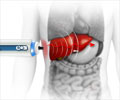A new combination drug for cystic fibrosis has been approved by the USFDA in people ages 12 and older that can treat the underlying cause of the disease.
- Dual drug combination of tezacaftor/ivacaftor has been approved by the FDA for cystic fibrosis (CF)
- Cystic fibrosis is a genetic disorder where the cystic fibrosis transmembrane conductance regulator (CFTR) protein function is abnormal due to mutations in the gene that codes for it
- Combination drug that can correct the function of the CFTR protein has been approved to treat people with CF who are above 12 years of age with certain gene mutations
CFTR Modulators
Cystic fibrosis treatment consists of targeting the underlying cause of the disease, namely the functioning of the CFTR protein. Drugs that are used to correct or modulate the function of the CFTR protein are called “modulators.” When the primary function of the CFTR protein is corrected to a certain extent, a proper chloride flow is reestablished, and the mucus gets rehydrated inside the lungs and other organs. Improving chloride flow even to a certain extent can relieve symptoms for people with CF.FDA Approved Drug
Tezacaftor/ivacaftor (Symdeko™) is the new drug combination that has been approved by the FDA for people with CF ages 12 and older who have two copies of the most common CF mutation, F508del. Symdeko has also been approved for people with CF ages 12 and older who have a single copy of one of 26 specified mutations, regardless of their other mutation.Ivacaftor is a type of CFTR modulator called a "potentiator." It keeps the gates of the CFTR protein channel open to allow chloride flow through the cell surface.
Two copies of the F508del mutation is found in almost half of people with CF. Having this mutation prevents the CFTR protein to form the right three-dimensional shape, in turn, preventing the transport of the protein to the cell surface in order to function. Another kind of modulator known as a “corrector” can accomplish the task but not a hundred percent. Hence using a drug combination of a corrector along with a potentiator, (to keep the protein gates open long enough for enough chloride to pass through) can double the benefits of a modulator.
The drug combination tezacaftor/ivacaftor was developed by Vertex Pharmaceuticals Inc., a global biotechnology company based in Boston, Massachusetts, along with significant clinical, scientific, and funding support from the Cystic Fibrosis Foundation.
Phase 3 Clinical Trials
The first phase 3 trial was a 24-week randomized, placebo-controlled study known as EVOLVE that tested the efficacy and safety of the tezacaftor/ivacaftor combination treatment in people with CF ages 12 and older with two copies of the F508del mutation. There was a mean absolute improvement in lung function by four percentage points in people with CF compared to those taking a placebo. Other significant improvements were a 35 percent reduction in the sudden worsening of symptoms requiring treatment (exacerbations) and an increase in quality of life.The second phase 3 trial was a 8-week randomized, placebo-controlled, crossover study known as EXPAND that evaluated the efficacy and safety of tezacaftor/ivacaftor combination treatment as well as ivacaftor monotherapy in people with CF 12 and older who have at least one copy of the 26 specified mutations that results in residual CFTR function and one F508del mutation. There was a mean absolute improvement in lung function of 6.8 percentage points in people with CF compared to placebo and a 4.7 percentage point improvement in the ivacaftor monotherapy group compared to placebo.
“Today's approval is exciting news for the cystic fibrosis community and a big step forward in our ongoing efforts to find new and better treatments to address the underlying cause of the disease,” said Preston W. Campbell, III, M.D., president and CEO of the CF Foundation. “We are optimistic that next-generation CFTR modulators that build on this advance could bring transformative treatments to nearly 90 percent of people with CF, and we remain committed to finding effective new treatments for every individual living with the disease.”
Late stage clinical trials have been planned in the next several months for triple combination therapies (treatments consisting of three different modulators, including tezacaftor, ivacaftor and a next-generation modulator that can also benefit individuals with a single F508del mutation).
Cystic Fibrosis
Cystic fibrosis is a progressive, genetic disease that is caused by mutations in a gene called the cystic fibrosis transmembrane conductance regulator (CFTR) gene. There are more than 1,700 different mutations in the CFTR gene that can cause CF.The CFTR gene is responsible for creating the CFTR protein whose primary function is to regulate the transport of chloride (a component of salt) and fluids inside and outside of the cell. When there is a mutation or a defect in the CFTR gene the resulting CFTR protein is not made correctly or not made at all, which affects the salt and fluid conduction across the cell membrane. This results in thick, sticky mucus build-up in the lungs, pancreas, and other organs.
In the lungs, mucus buildup can clog the airways and trap bacteria leading to infections, extensive lung damage, and respiratory failure. Similarly, in the pancreas, the mucus prevents the release of digestive enzymes that in turn affects digestion. Overall, CF patients experience symptoms like wheezing or shortness of breath, persistent coughing (with or without phlegm), pneumonia or bronchitis, weight gain and poor bowel movement.
References:
- FDA Approves New CFTR Modulator Treatment for Cystic Fibrosis - (https://www.cff.org/News/News-Archive/2018/FDA-Approves-New-CFTR-Modulator-Treatment-for-Cystic-Fibrosis/)
















